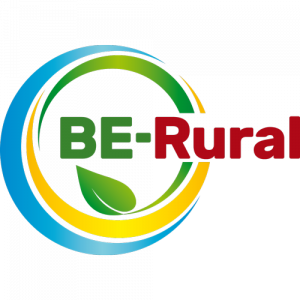The founding principles and concept of BE-Rural
The transition towards a new, bio-based regional economy needs the active involvement of a broad spectrum of stakeholders as well as the sustainable use of agricultural, forest and marine ecosystems. BE-Rural will support five innovation regions to realise the potential of their regional and local bio-based economies and to create bioeconomy strategies and roadmaps.
Engagement is critical
To achieve the project objectives, engagement with and of the local and regional stakeholders is crucial. BE-Rural will combine the living lab concept with an ‘open innovation platform’ approach. This means that the team will bring people together in a co-creation process and initiate new networks in which value and innovation will be created. This process will be open, inclusive and transparent – the project team will encourage representatives of government, business, academia and civil society to participate. A comprehensive documentation will ensure that interested stakeholders can join also at later stages of the process. Sustainability – social, environmental and economic – will be in the focus of the strategy design process.
Environment takes centre stage
BE-Rural takes a Quintuple Helix Approach which combines knowledge and innovation generated by key stakeholders from policy, business, academia and civil society within the frame of the environment. This approach is favourable to solve inter- and transdisciplinary challenges as the stakeholders involved have backgrounds in the field of natural sciences, social sciences and humanities etc. To ensure that the environment takes centre stage, BE-Rural will first analyse the regional framework conditions and make sure that new bio-based business models function within the environmental boundaries. Further, BE-Rural’s ambition is to foster the local implementation of the Agenda 2030, in particular SDG2 (zero hunger), SDG8 (decent work and economic growth), SDG9 (industry, innovation and infrastructure), SDG11 (sustainable cities and communities), SDG13 (climate action), SDG14 (life below water), SDG15 (life on land).
Action Research
Action research focuses on working out concrete solutions to problems and building practical ‘how to’ knowledge. It is structured in the form of continuous feedback loops, with researchers involved at all stages of activity. BE-Rural will follow the Action Research scheme and go from planning, to action, to description and evaluation, to reflection, and then to planning and action once more.
The basis we are building on – BE-Rural conceptual framework
The BE-Rural conceptual framework adopts and builds upon the Research and Innovation Strategy for Smart Specialisation (RIS3), which states that national and regional authorities are required to design and implement Smart Specialisation Strategies to stimulate and support innovation, drawing on the European Structural & Investment Funds and national/regional resources (European Commission, 2012). According to Carayannis and Rakhmatullin (2014), “smart specialisation strategies mainly build on strengthening pre-existing specialisations at the regional level with the aim of reaching the European 2020 goals in research and innovation”. BE-Rural complements the RIS3 process and where RIS3 already exists, the project will engage with its structures, networks and stakeholders. The table in the Conceptual Framework deliverable (D1.1) illustrates how RIS3 assessment steps can be linked to BE-Rural.
Please take a look at the deliverable “Sustainability and Participation in the Bioeconomy: A Conceptual Framework for BE-Rural” here.



 Source: Pixabay
Source: Pixabay